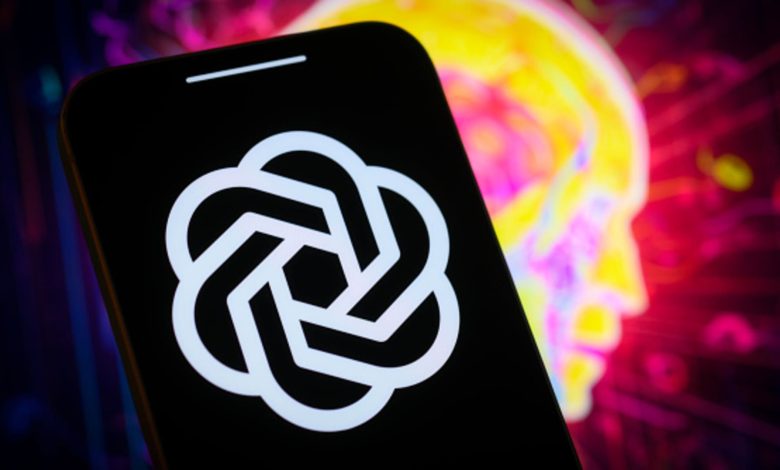DeepSeek, next-generation AI agents may erode value of large models

Jaap Arriens | NurPhoto via Getty Images
Large language models like those developed by Microsoft-backed firm OpenAI are set to become commoditized this year amid rapid advances toward next-generation artificial intelligence agents and more nimble, open-source rivals, according to top tech executives.
Last week, Chinese AI firm DeepSeek released R1, an open-source reasoning model that claims to rival OpenAI’s o1 model on both cost and performance. Open-source refers to software whose source code is made freely available on the open web for possible modification and redistribution.
This week, growing awareness of DeepSeek’s new model led to a severe slump in shares of Nvidia and other tech giants, as investors feared a possible retrenchment in spending on the powerful graphics processing units required to train and run advanced AI workloads.
Nvidia lost close to $600 billion in market capitalization on Monday — the biggest single-day drop for any company in U.S. history.
Meanwhile, executives and scientists at leading AI labs are all talking up a shift from large language models to so-called “AI agents” that can carry out actions on your behalf.
LLMs are the foundational technology behind today’s generative AI apps. However, experts believe a push toward agentic AI systems — which incorporate LLM technology — this year will erode the value of these models.
Commoditization of LLMs
LLMs are expected to become more of a commodity in the near future as the tech becomes increasingly advanced and the costs involved in training and running them continue to drop.
Thomas Wolf, co-founder and chief science officer of Hugging Face, suggested LLMs will become more integrated into intelligent systems linked to the company’s own databases.
“I think people are moving from this craziness around the model, understanding that, thanks to open-source … a lot of these models are going to be free and freely available,” Wolf told CNBC. Hugging Face is a popular code repository for open-source AI projects.
“In the internet revolution, we’re moving from building websites as the main business to actually building internet-native companies — so, the Airbnb of AI, the Stripe of AI,” he added. “They are not about the model. They are about the system and how you make the model useful for tasks.”
The arrival of DeepSeek’s R1 model last week is viewed by some tech CEOs as a further indicator LLMs are becoming increasingly commoditized.
R1 incorporates some key aspects that differentiate it from other models on the market. For example, the model incorporates a “mixed precision” framework that uses a combination of full-precision 32-bit floating point (FP32) numbers and low-precision 8-bit floating point (FP8) numbers.
The latter is faster to process but can be less accurate. However, rather than rely on one or the other, DeepSeek uses FP8 for most calculations and switches to FP32 for certain tasks where a higher degree of accuracy is required.
“As AI gets more efficient and accessible, we will see its use skyrocket, turning it into a commodity we just can’t get enough of,” Microsoft CEO Satya Nadella wrote on social media platform X, in an apparent reference to DeepSeek.
Meanwhile, Matt Calkins, CEO of U.S. software firm Appian, told CNBC that DeepSeek’s success simply shows that AI models are going to become more of a commodity in the future.
“In my opinion, we’re going to see a commoditization of AI. Many companies will achieve competitive AI, and a lack of differentiation will be bad for high-spending first-movers,” Calkins said via email.
What are AI agents?
In the last two years, much of the focus has been on LLM-powered products, from generative AI chatbots like OpenAI’s ChatGPT to tools that can produce images and video content.
LLM-based generative apps like ChatGPT rely on a certain amount of handholding from users to continuously prompt them for outputs, whereas in contrast, AI agents are designed to be more action-oriented.
If you wanted to book a doctor’s appointment, for example, you could ask ChatGPT for information on your nearest GP practices — similar to how you’d query the web using Google’s search engine.
In future, tech execs predict the next generation AI will involve agents that can find out where your nearest GP is, provide available times for your doctor, and book you an appointment — all directly within a single platform. This is expected to transform the way that we interact with the web.
“Over the decades since the web was invented, the standard interface of webpages and menus hasn’t really changed very much,” Bobby Blumofe, chief technology officer of Akamai, told CNBC previously.
“We’re sort of living in this tyranny of being tethered to a screen and being tethered to web pages and menus you have to remember how to navigate.”
The shift from models to agents
Last week, Arthur Mensch, the CEO of Mistral said that he thinks the “focus should shift to systems” that integrate both language models and contextual business data.
“That’s that’s where this is shifting,” Mensch told CNBC’s Arjun Kharpal at the World Economic Forum’s annual gathering in Davos, Switzerland.

“It also means that the industry that is adopting it, is going to distill its expertise into those systems — and that’s where that’s going to be necessary to actually drive the value of AI into those industries.”
Mistral, which is backed by Microsoft, has swiftly become one of Europe’s buzziest AI firms. Founded only two years ago, it was last valued by investors at around $6 billion in June 2024.
The trend of agents has already gained considerable traction. Last week, OpenAI launched its own agent, called Operator. OpenAI describes it as “an agent that can go to the web to perform tasks for you,” adding it’s trained to interact with “the buttons, menus, and text fields that people use daily” on the web.
Microsoft, which has invested billions of dollars in OpenAI, rolled out AI agents itself in November.
Anthropic, an Amazon-backed AI startup founded by ex-OpenAI research executives, last year introduced “computer use,” which is a capability that allows its AI agents to use computers like humans to complete complex tasks.
Dario Amodei, CEO of Anthropic, told CNBC’s Andrew Ross Sorkin in Davos last week that Computer Use should be thought of as a precursor to a “broader vision” that integrates these agents with commonly used applications.
“We are planning this year in 2025 to build something that we call the ‘virtual collaborator,'” Amodei said, describing it as “an agent that operates on your computer.”

“You can give it tasks. You can say, write this feature for this app, and it’ll write some code, it’ll compile the code, it’ll check the code, it’ll talk to its coworkers on Slack, or on Google Docs, or on some other platform,” Anthropic’s chief explained.
Anthropic plans to gradually build out pieces of this vision over the next year — while still ensuring it’s “safe and controllable,” Amodei added.
Paul O’Sullivan, Salesforce’s chief technology officer for U.K. and Ireland, predicts verbal communication will become more important in the new world of AI agents. Salesforce was arguably early to the agentic AI game, having launched its own Agentforce system in September before Microsoft, OpenAI or Anthropic.
“We will converse more,” he told CNBC in a recent interview. “The screens will get smaller, our eyes will get worse. But they’ll probably be replaced with mobile devices that are more powerful than laptops anyway.”



